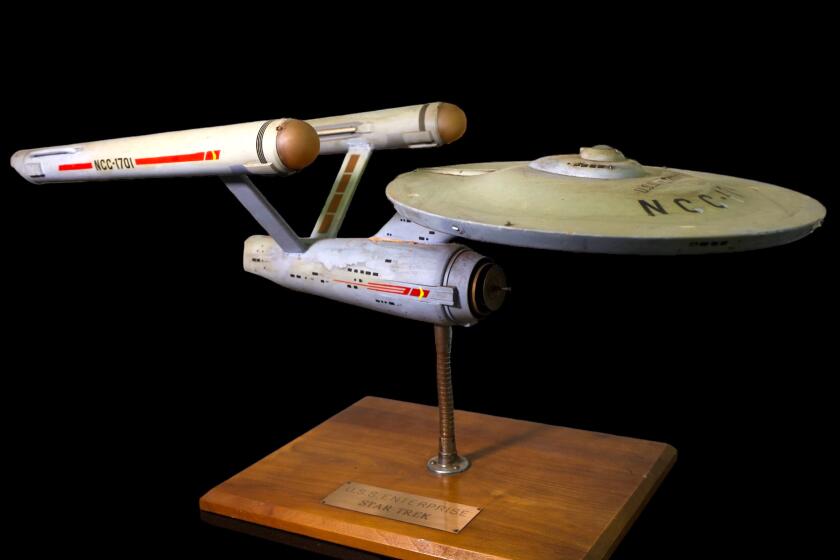Northrop Won’t Fight Decision
Northrop Grumman Corp. said Friday that it would not appeal NASA’s surprising decision to award a multibillion-dollar contract to rival Lockheed Martin Corp. to build an Apollo-like capsule that would return humans to the moon.
Last month, Northrop and teammate Boeing Co. lost the contract, potentially worth $8.1 billion over a dozen years, despite having played a key role in the development of the Apollo program in the 1960s.
“We don’t plan to protest,” Northrop spokesman Brooks McKinney said. “While we are disappointed, we believe it’s been a fair competition.”
The Century City-based defense contractor still has several days to formally protest the decision. But Northrop representatives said a post-competition briefing by NASA officials Sept. 7 persuaded the company to “move forward and seek other opportunities” with the exploration project.
Under the $104-billion program, dubbed Constellation, NASA wants to return crews to the moon no later than 2020 and then send humans to Mars. In addition to designing the capsule, the program calls for building new launch vehicles, designing an Earth departure vehicle that would ferry the capsule to the moon and developing a new lunar lander.
The capsule “is not the only thing out there and there are a lot of systems still to be had,” McKinney said.
Northrop’s decision came as NASA released details of a 20-page document summarizing the space agency’s rationale for picking Lockheed.
The document, written by Doug Cooke, the space agency’s deputy associate administrator for exploration, said the selection team found Lockheed’s proposal “clearly superior” in its technical approach.
The selection team also deemed both teams’ cost proposals for building the capsule “very realistic” but said Lockheed’s final price tag turned out appreciably lower.
In writing the document, Cooke said that both proposals were sound but that Lockheed’s plan had a “clear advantage” in three of the four major criteria set for evaluating the proposals.
*






